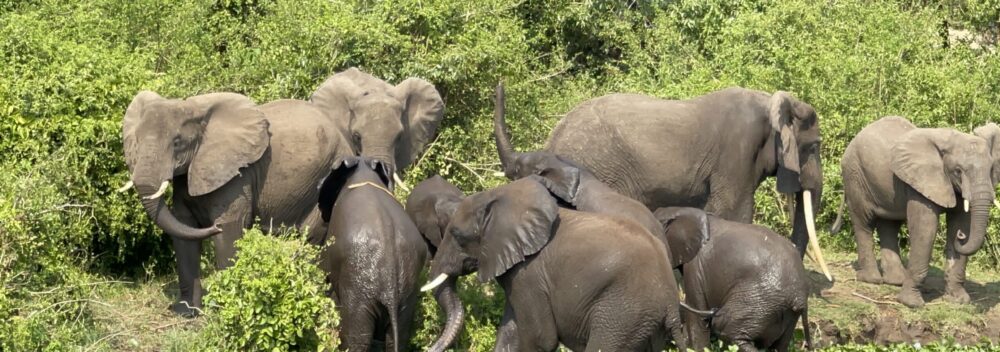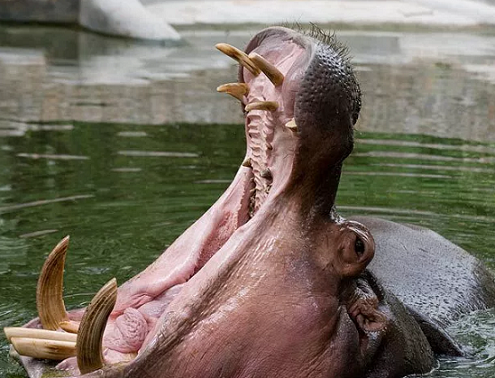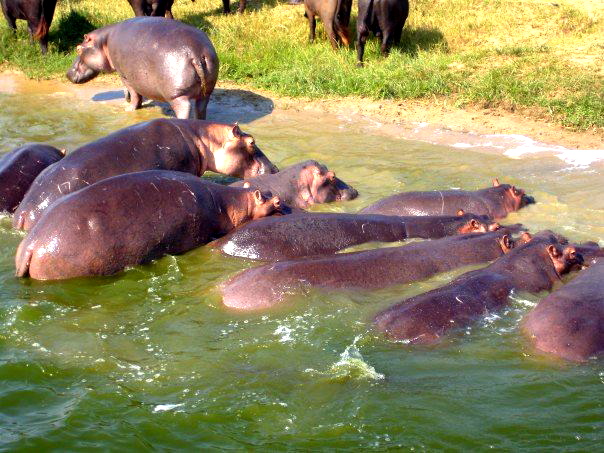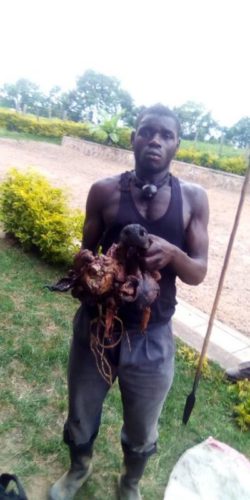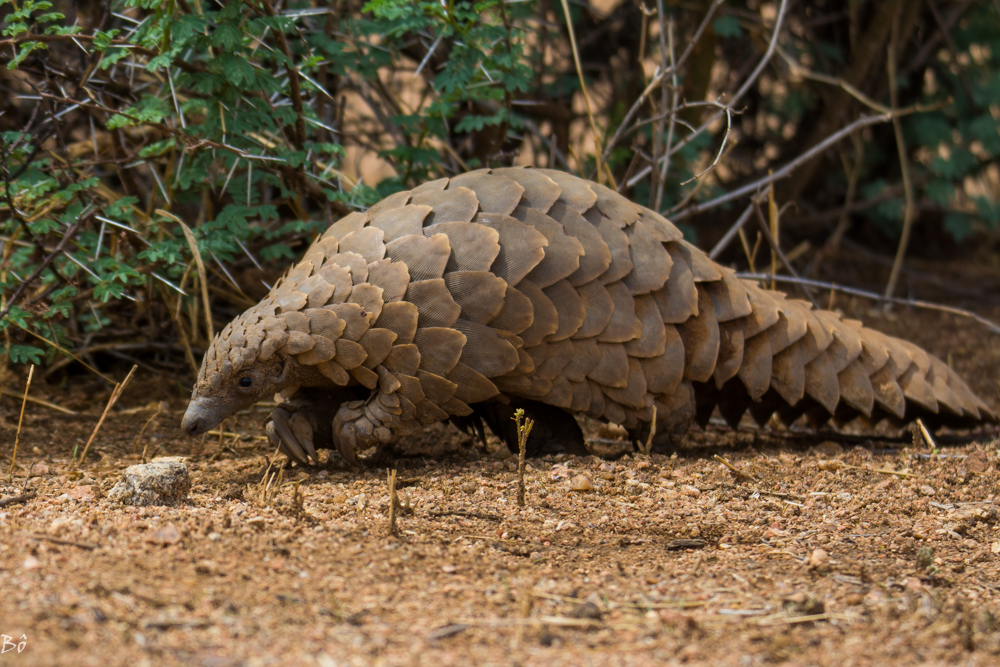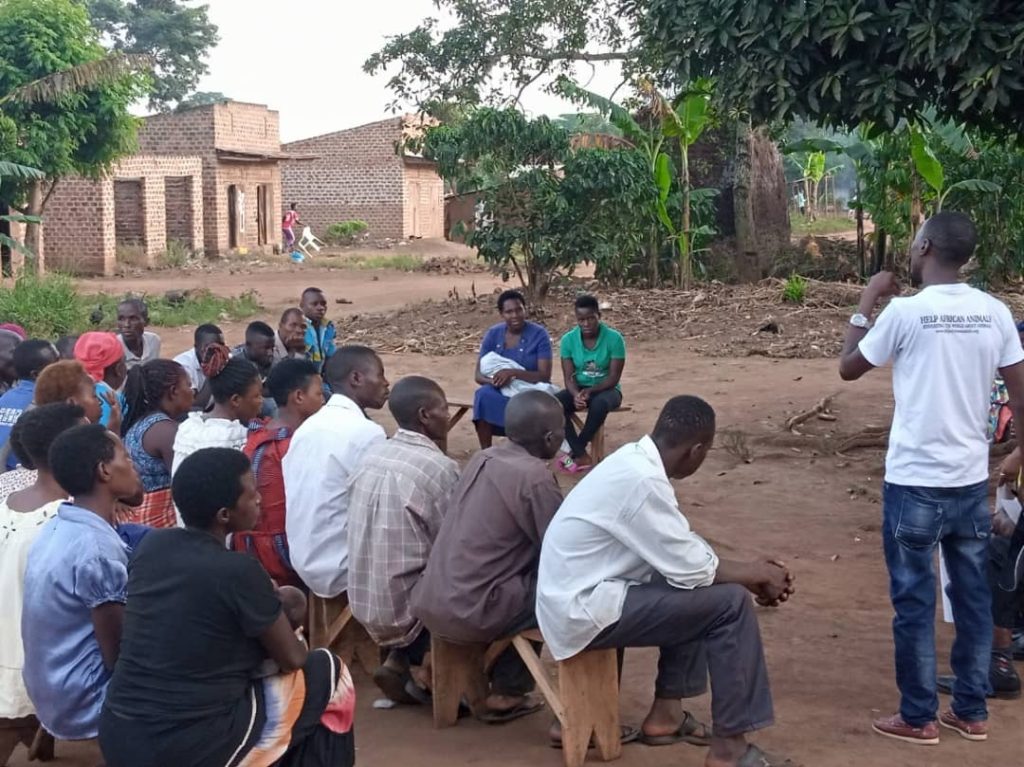Category Archives: Uncategorized
Save hippos from extinction
Hippos are the third-largest terrestrial mammal. Unregulated hunting for their meat, skin, and teeth, combined with shrinking habitats and increased hippo-human conflict have led to the decline of hippo populations across Africa.
The International Union for the Conservation of Nature (IUCN) classifies hippos as vulnerable. IUCN estimates that there are up to 130,000 hippos in sub-Saharan Africa. Currently, hippos are confined to protected areas and over the past 10 years, their population has continued to shrink.
Hippo teeth are carved into ornaments before being put up for sale, mainly in Asia.
Suspected murderers of Uganda’s rare silverback gorilla remanded to prison
Kisoro Magistrates Court on Friday remanded the four men suspected of gruesomely murdering Uganda’s rare silverback gorilla, Rafiki in the Bwindi Impenetrable National Park. Under section 71 of the Uganda Wildlife Act, each of the four men is liable to life imprisonment or a fine of $5 million or to both if found guilty of murdering the endangered species. The four men will be returned to court on June 29th, 2020.
Uganda’s rare silverback mountain gorilla – Rafiki killed by poachers
Uganda mourns the death of Rafiki, a 25-year old male silverback gorilla, the leader of a gorilla group, who was hugely popular with tourists. Rafiki was the head of a 17-member gorilla group called Nkuringo. He was killed by poachers in the Bwindi Impenetrable National Park.
According to a statement issued by the Uganda Wildlife Authority (UWA), Rafiki went missing from his group on June 1st, 2020. The following day, a team from UWA mounted a search for him. His body was found within the park that same day. UWA revealed that a post-mortem showed that a sharp device or object was used to penetrate Rafiki’s abdomen and pierced his internal organs.
UWA personnel arrested four men this week. The men confessed to the killing of Rafiki by a spear allegedly in self-defense while they were illegally hunting other animals in the park from where he charged on them. The men were found in possession of bush pig meat and several hunting devices which included a spear, rope snares, wire snares, and a dog hunting bell.
Poaching has increased in Uganda’s national parks in recent months due to the COVID-19 pandemic which made the country to close parks to tourists. The accompanying lockdown has forced rural people to resort to illegal hunting out of desperation which has put the lives of animals at risk. Animals need our protection now more than ever.
Rest In Peace Rafiki.
China removes scales of the world’s most trafficked mammal – pangolin from the list of traditional medicine
The Chinese government has removed pangolin scales from its 2020 list of approved ingredients used in traditional Chinese medicine. The scales have for long been sold in traditional pharmacies in China as an ingredient for the treatment of a number of human diseases.
Poaching of pangolins for international wildlife trafficking is a major threat to the survival of the species in the wild. Pangolin meat and scales are on high demand in parts of Asia which led to severe depletion of pangolin populations in Asia. As pangolin populations in Asia declined, there emerged an increase in the trafficking of pangolins from Africa. In 2019 alone, over 130 tons of pangolin scales, representing over 400,000 African pangolins were seized globally according to Wildaid.
The decision by China is a critical step towards saving pangolins. It comes days after China announced stricter protection of pangolins by raising them from the list of second-level protected species to that of top-level.
We hope the move will help to end the global illegal trade in pangolins.
The goal of Help African Animals
The role of women in the fight against wildlife crime
Women and men interact with biodiversity and natural resources in different ways according to their socially assigned gender roles. They have different knowledge, needs, and perspectives. Women may use certain natural resources more than men, and vice versa.
Today, women participate in wildlife crime either knowingly or unknowingly. In many rural areas in Uganda, women are highly involved in charcoal burning, stone quarrying, and fishing of immature fish. The leading cause of this has been mainly subsistence. Many women are single mothers/widows with children that they provide for single-handedly. They resort to the illegal harvest of the resources and destruction of habitats for animals.
Help African Animals deliberately targeted women and involved them in the education campaign. This followed our realization that women’s active participation in natural resource management leads to better conservation outcomes.
Fighting wildlife crime through education
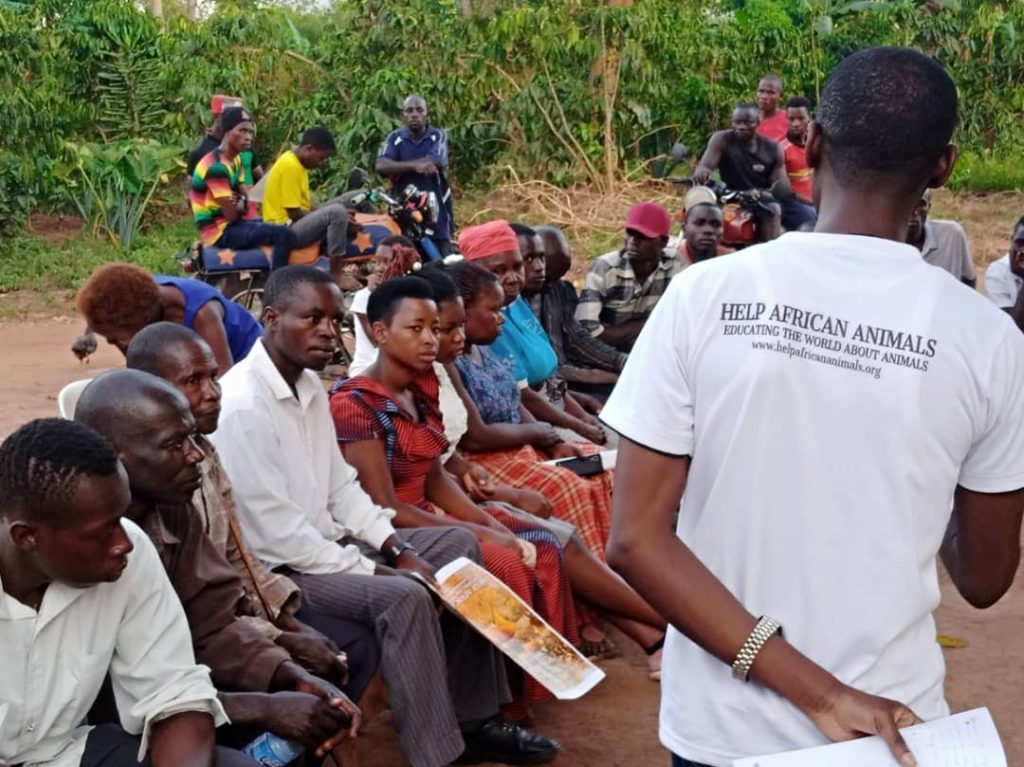
A volunteer of Help African Animals educating rural people in a community wildlife talk held at Kapeeka sub-county, Nakaseke district of Uganda
In Uganda, rural people and animals live in the same ecosystem. The struggle for space and food between animals and humans is still a huge problem in Uganda. With all the dangers associated with living with wildlife, people regard wildlife as enemies which they must eliminate. Rural people are ignorant of the importance of conservation and the laws protecting wildlife. Out of ignorance, they kill animals which has sent many species of wildlife into extinction.
Rural people are also increasingly used by traffickers in the illegal wildlife trade. They are paid to kill the animals or used in the transportation of the protected species within the country and across borders. Rural people benefit less from illegal wildlife trade because they do not know the value of wildlife. Sadly, they are the ones who many times end up being arrested with the species and charged. They are shocked to learn that the species they killed/possessed are highly endangered/protected and that the offenses attract penalties of up to life imprisonment.
Having different individuals in the community to attend the education campaign was a great idea. Community members had a chance to learned that wildlife on their land or in their community is not theirs to kill/eat/destroy. They learned the importance of protecting wildlife, how to protect wildlife in their community, to identify wildlife crime and report it, the laws protecting wildlife, and penalties for violation of the laws.
Help African Animals is driven by the belief that unless people understand the dangers of killing/destroying wildlife, they will not care to conserve it and unless they care, they won’t help to support or participate in conservation efforts/programs. Animals don’t speak. Let us speak for them.
African animals suffer because of ignorance of the law

A cow being forced into a saloon vehicle in order to be transported
In Africa, animal cruelty is more often a result of ignorance about the laws protecting animals than it is about deliberate intent. Consequently, many times, humans are not aware that they are abusing animals.
The situation can only change if we raise awareness about the laws protecting African animals among the people.
Rhino horns are for Rhinos
The greatest threat facing African rhinos today is poaching for the illegal trade in their horns. The illegal trade has soared in recent years. The two African rhino species – black rhino and white rhino continue to be at risk due to a huge surge in poaching to meet the demand for the illegal rhino, primarily in Asia countries.
Rhino horn is predominantly used in traditional Chinese medicine. The horn is also increasingly used as a symbol to display success and wealth.
Let us unite and bring an end to this impunity. Rhino horns must be left to rhinos!
